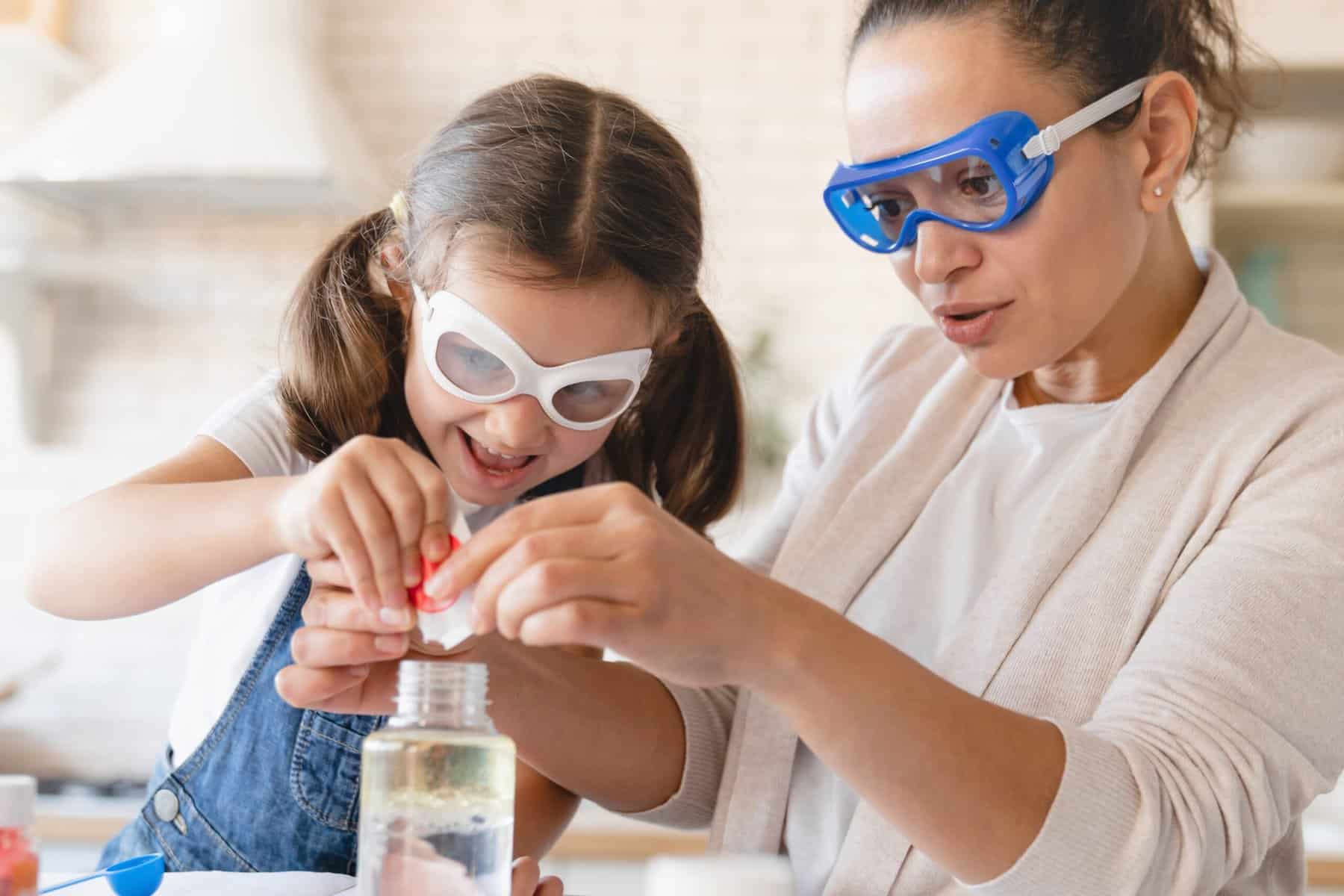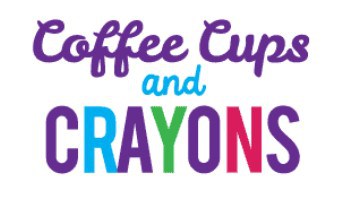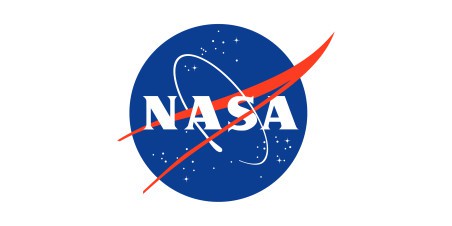Elementary Science Curriculum
The constant progression of science has influenced our daily lives more than almost any other study. Weather balloons and GPS satellites whiz over us, placed in orbit by self-landing rockets. Jobs are becoming more dependent on computers, and more people are working from high-tech home offices.
A strong science education is important because it gives us a broad understanding of how our ever changing world works. It also allows us to solve problems, encounter unfamiliar situations confidently, and find the best solutions.
Students need solid early science lessons to develop these problem-solving skills. The best elementary school science curriculum will include:
- Observation: learning how to notice the details all around them, using animals, plants, and their own senses
- Safety habits: practicing safety and awareness around the house, around pools, and around nature
- Earth science: observing the water cycle, the rock cycle, the weather, and our natural biomes
- The solar system: understanding our moon, the planets, and our sun
- Anatomy: discovering muscles, bones, and organs, as well as healthy eating and hygiene
Science lesson plans are best taught using a combination of classroom learning, hands-on experimentation, and natural experiences. Students need written concepts and vocabulary as much as they need to explore those concepts in the world around them.
Early Elementary Science
In early elementary science lessons, students learn fundamental skills that they can apply throughout their education and lives. Early elementary students want to learn how the world works. We design our science education to stimulate that natural curiosity. Getting them excited about science is another way for parents to encourage a healthy relationship with learning.
One of the fun aspects about learning science is that it can pop up in any situation. Students can identify weather and learn about the water cycle while looking outside of their car window on a drive. A trip to the grocery store can spark a conversation about the food chain. Science discussions can happen anywhere, which shows children that science is everywhere.
Science All Around Me
1st Grade
All science begins with strong observation skills — the ability to recognize details and ask questions about them. Because it is so important to notice aspects of the world, our early elementary science curriculum focuses on observation. In Science All Around Me, every lesson is centered around a question kids might ask about the natural world. Then, students are guided through observing the natural world to answer these questions. In this course, students learn about topics like:
- What a scientist does
- The five senses and how they help us make observations
- The human body, including parts and organs, diet, exercise, germs, and sleep
- What a living thing is and the differences between plants and animals
- Observing force and motion, such as magnetism and gravity
- Observing the sky, including day, night, seasons, and weather
Beginning Science 1 & 2
1st & 2nd Grade
Students now have the opportunity to practice and develop their observation skills further. Students create their own theories about their questions, which can develop their hypothesis skills and their interest in experimentation. Lessons include topics such as:
- Safety gear, safe habits, and first aid
- Observations between living and nonliving things
- Observations about animals, including “Tell Me About…”
- Fur, Feathers, Scales, or Skin
- Things with Wings
- Things with Scales
- Turtles
- Things with Fur
- Farm Animals
- Zoo Animals
- Insects, seasons, the sun, plants and weather
Elementary Science 1
3rd & 4th Grade
At this age, students take on new challenges as they describe increasingly complex aspects of nature. For example, students will observe the solar system or the anatomy of the human body. Their basic skills will boost their success with these more difficult observations. The topics in Miacademy’s lessons for third and fourth graders include:
- The scientific method and healthy habits
- Biomes, including deserts, the Arctic, oceans, and more
- Fresh water vs. salt water and the states of water and clouds
- Different materials and their properties
- Animal classification, including dog breeds and forest animals
Upper Elementary Science
We design our upper elementary science curriculum as a bridge between early elementary grades and middle school grades. A good science education helps foster a positive relationship with encountering and problem solving something unfamiliar. At this age, students receive a variety of lessons that support their growing interests, curiosity, and understanding of the world.
General Science
4th & 5th Grade
Students will continue their exploration of the natural world and begin to understand how nature’s resources influence our daily lives. Students also begin applying the scientific method, which shows them how to process a new situation step by step. Some of the topics fourth and fifth graders learn about are:
- States and properties of matter, physical and chemical changes, and mixtures vs. solutions
- Forces and motion, including friction, inertia, gravity, and magnetism
- Simple machines, including wheels, pulleys, and inclined planes
- What energy is and its different forms, including electrical, sound, and light energy
- Energy in ecosystems, including food chains, webs, producers, and consumers
- Earth’s resources, including renewable and nonrenewable resources and pollution
Earth Science
5th – 8th Grade
At this age, students get into increasingly advanced science lessons to help them prepare for high school and beyond. These lessons gradually incorporate solving real-world problems with students’ knowledge of scientific principles. In Miacademy’s Earth Science course, students will learn about:
- The scientific method
- The states of matter
- Layers and movement of the Earth
- The rock cycle and identifying rocks, crystals, and gems
- Continental drift and plate tectonics
- Earthquakes, tsunamis, and volcanoes
- Weathering, erosion, and deposition
- The water cycle and weather and climate
- Renewable and nonrenewable resources
Astronomy
5th – 8th Grade
Students will delve into the intricacies of the universe, exploring the characteristics and movements of celestial bodies. The course examines the relationships between our planet and the sun, moon, and other entities in our solar system. Key topics include:
- The scientific method
- The movements of Earth and its moon
- The laws of planetary motion and their connection to gravity
- The sun and the planets of its solar system
- Structures beyond our solar system, like nebulas, black holes, and more
- The Space Race, current space exploration, and new discoveries
Miacademy’s Homeschool Elementary Science Curriculum
Miacademy offers dozens of science lessons that span kindergarten through middle school, and we’re adding more all the time! These lessons provide scientific simulations, hands-on activities, and experiments that students love. With fun videos that explain the concepts clearly and interactive PDFs and activities, Miacademy’s science curriculum for homeschool families makes teaching science fun and easy for all grade levels!
In addition, we design our science homeschool curriculum to be flexible enough to the needs of many different learners. We pride ourselves on creating a curriculum that is research-based, engaging, and most importantly, adaptable to your needs. Our self-paced curriculum enables you to apply concepts in new and exciting ways, move ahead when students are ready for a challenge, or pace your lessons as your child is learning new concepts.
Our curriculum is accredited by the Accreditation Commission for Schools – Western Association for Schools and Colleges (ACS-WASC). Our accredited K-8 courses are designated as a Supplementary Education Program (SEP), indicating that they meet the high standards for educational quality in a homeschool or distance-learning program. Our science lessons use the 5E instructional model (Engage, Explore, Explain, Elaborate, and Evaluate) to create the most effective lessons possible.
Science Experiments for Elementary Students
Science experiments are an essential (and exciting) part of any homeschool curriculum! Need a jump-start on some science activities? Here are some quick resources and easy science experiments to get you started today:
Are you wondering if Miacademy is the best homeschool science curriculum for your elementary student? Please feel free to chat with one of our helpful customer service agents! They’ll be happy to help you with any questions you may have.
Updated 01/16/2024



